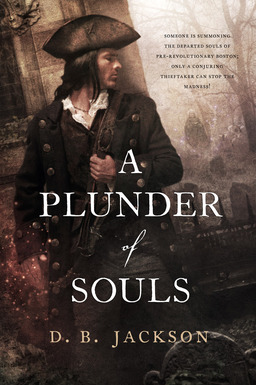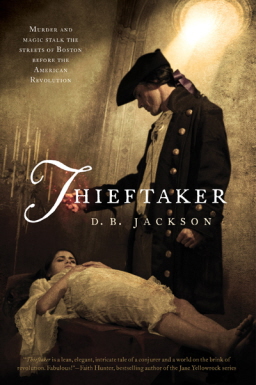The Life and Times of a Midlist Author
 Late last summer, I was interviewed by Garrett Calcaterra for a Black Gate article on the writing life of midlist authors. That article, which also drew upon interviews conducted with Patrick Hester, Wendy Wagner, and M. Todd Gallowglas, can be found here and is still worth reading.
Late last summer, I was interviewed by Garrett Calcaterra for a Black Gate article on the writing life of midlist authors. That article, which also drew upon interviews conducted with Patrick Hester, Wendy Wagner, and M. Todd Gallowglas, can be found here and is still worth reading.
But I thought it might be interesting, a year later, to revisit the life of at least this midlister to see how things are going. A bit of background first: Under my own name, David B. Coe, I have been writing professionally for twenty years now, and I’ve been a published author for seventeen. “What’s the difference?” you ask. Well, I signed my first publishing contract and received my first (microscopic) advance in the summer of 1994. But that first book needed to be edited, revised, edited again, revised again, copyedited, and proofed. And it needed to be fitted into the already crowded publishing schedule of Tor Books. It finally was released in May 1997.
Which brings us to the first of many hard truths about the publishing industry: It moves at its own, sometimes glacial, pace. Yes, this is one reason why some writers grow so impatient with the business that they turn to self-publishing, which offers more immediate gratification for those who are eager to see their work in print. But for more reasons than I can go into today, that is not a path I have chosen to follow.
Writing now as D. B. Jackson, I am the author of the Thieftaker Chronicles, a historical urban fantasy series set in pre-Revolutionary Boston. The first two books, Thieftaker (Tor Books, 2012) and Thieves’ Quarry (Tor Books, 2013), have been received very well critically and did well enough commercially that Tor bought two more books from me. The first of these, the third in the series, is called A Plunder of Souls and it drops on July 8, 2014. (Please buy it. In fact, feel free to buy a few copies; they make great gifts and come in an attractive package complete with artwork by Chris McGrath. We now return to our regularly scheduled blog post . . .)
The fourth Thieftaker novel, Dead Man’s Reach, will be out next summer. And here we come to hard truth number two: For most full-time writers not named Martin, Gaiman, or Rothfus, one release per year is not enough to make a living. Most of the writers I know have a couple of projects going at once. I’m no exception.
